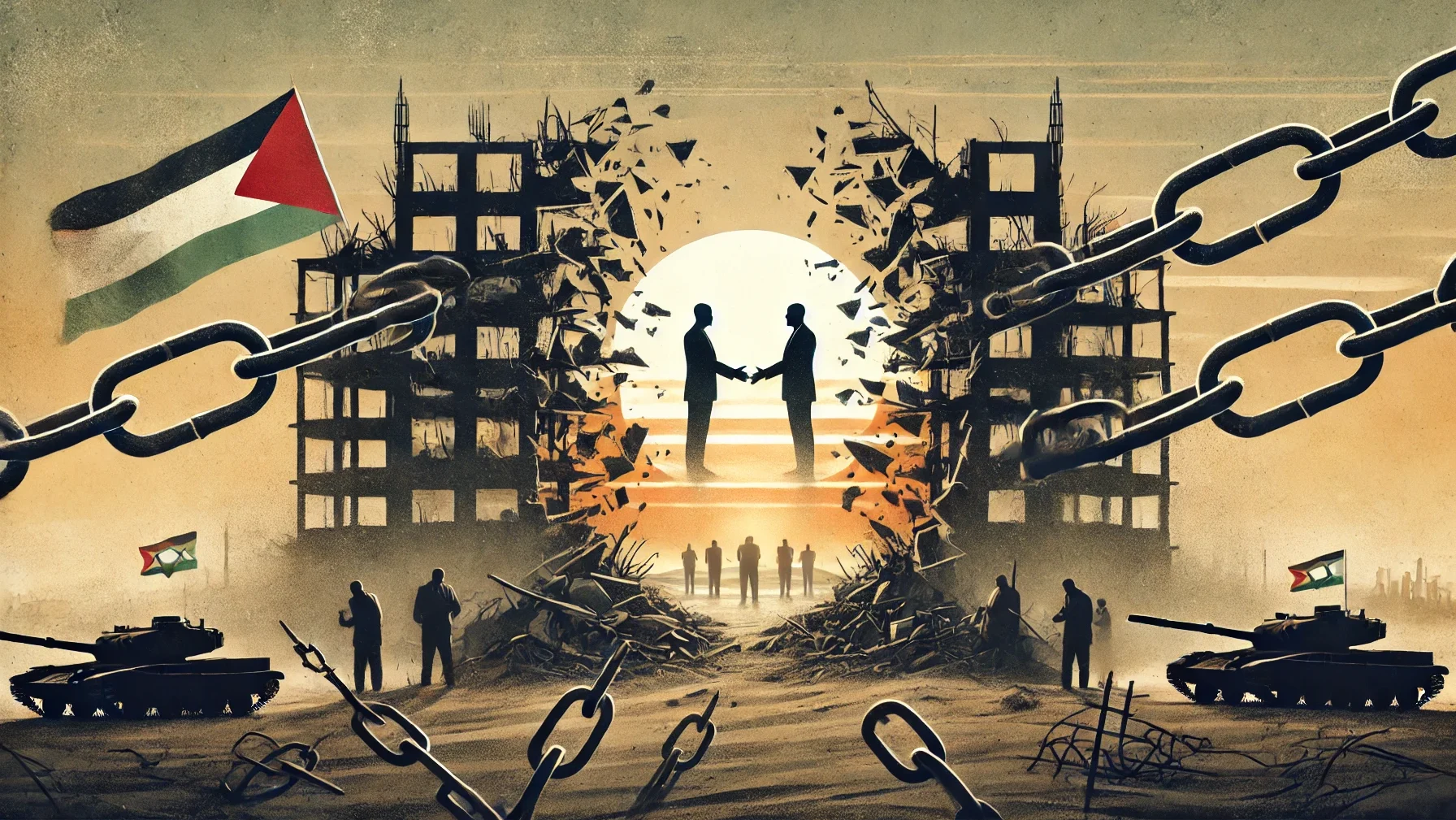Hamas: The Political and Military Body Has Become One
Al-Arabiya, Saudi Arabia, November 24
The quest for clarity in Gaza’s future and the conspicuous absence of Hamas’ political bureau from media discourse add layers of complexity to the Palestinian landscape. These factors may justify the lack of intra-Palestinian dialogue, leaving unanswered questions about political collaboration in handling Palestinian affairs—questions that might have been addressed if Hamas had scaled back some of its demands sooner. Chief among these demands was the Palestinian Authority’s removal from negotiations related to hostage situations and ending the conflict, a stance that weakened the collective Palestinian position. Hamas later insisted on a full reversion of Gaza to the pre-October 7 status as a prerequisite for any ceasefire agreement. This demand implies regaining full control over Gaza, the withdrawal of occupying forces, and the restoration of border crossings, even before any formal agreement is reached. Such conditions have given Prime Minister Netanyahu a pretext to prolong the conflict, ostensibly to pressure Hamas into making concessions. This delay has proven catastrophic for civilians, who bear the devastating consequences of a conflict prolonged by two parties showing little regard for humanitarian outcomes: Hamas, which ties the cessation of hostilities to its dominance in Gaza, and Netanyahu, whose political and ethical standing is intertwined with the war’s perpetuation. For the United States and Israel, negotiations resembled a mere hostage exchange deal, diverging sharply from Hamas’ aspirations of securing American guarantees for a postwar landscape. With no compelling leverage other than the hostages, and the battlefield reduced to widespread civilian anguish, Hamas’ strategy faltered. Meanwhile, the movement’s political rhetoric veered dramatically—from inciting uprisings against ruling authorities, trivializing the conflict to an intertribal skirmish, to idolizing the so-called resistance axis in a juvenile approach devoid of genuine political strategy. This discourse disregarded the longstanding support Arab nations have extended to Palestinians since the 1940s. Hamas, long yearning for direct negotiations with the US, misinterpreted America’s involvement, anticipating an agreement on its terms as inevitable—tantamount to American recognition of Hamas as a sovereign entity. Suspicious of the Palestinian Authority’s role, fearing it would strip Hamas of its grip on Gaza, the group harbored a delusion uncommon in political strategizing. Consequently, the war persisted, and Netanyahu stood firm in Gaza. With negotiations faltering and the intermittent or perhaps permanent closure of Hamas’ political office in Qatar, diplomatic prospects seemed grim, while the humanitarian crisis deepened. Hamas’ aspirations for a postwar resolution became increasingly elusive, exacerbated by Netanyahu’s maneuvering in Lebanon, shifting focus to those negotiations while Gaza awaited another deferred chance, with Hamas clinging to its original demands. This scenario renders the Palestinian dialogue equation unstable, particularly as the US administration broadens sanctions against certain Hamas leaders, likely extending further. This signifies a US shift from negotiation toward punitive measures, as Hamas’ search for a new headquarters for its political bureau intensifies amidst growing isolation and diminishing political legitimacy. The merger of Hamas’ political and military facets leaves reactivating its Qatar office under past conditions insufficient to lure back US negotiators for discussions on Gaza’s future. Hence, Hamas opts to maintain the current deadlock, necessitating its political bureau’s retreat from the public eye and suspending direct communication, forestalling significant Palestinian-Palestinian dialogues involving the Hamas leadership. —Ayman Khaled (translated by Asaf Zilberfarb)
Give the gift of hope
We practice what we preach:
accurate, fearless journalism. But we can't do it alone.
- On the ground in Gaza, Syria, Israel, Egypt, Pakistan, and more
- Our program trained more than 100 journalists
- Calling out fake news and reporting real facts
- On the ground in Gaza, Syria, Israel, Egypt, Pakistan, and more
- Our program trained more than 100 journalists
- Calling out fake news and reporting real facts



